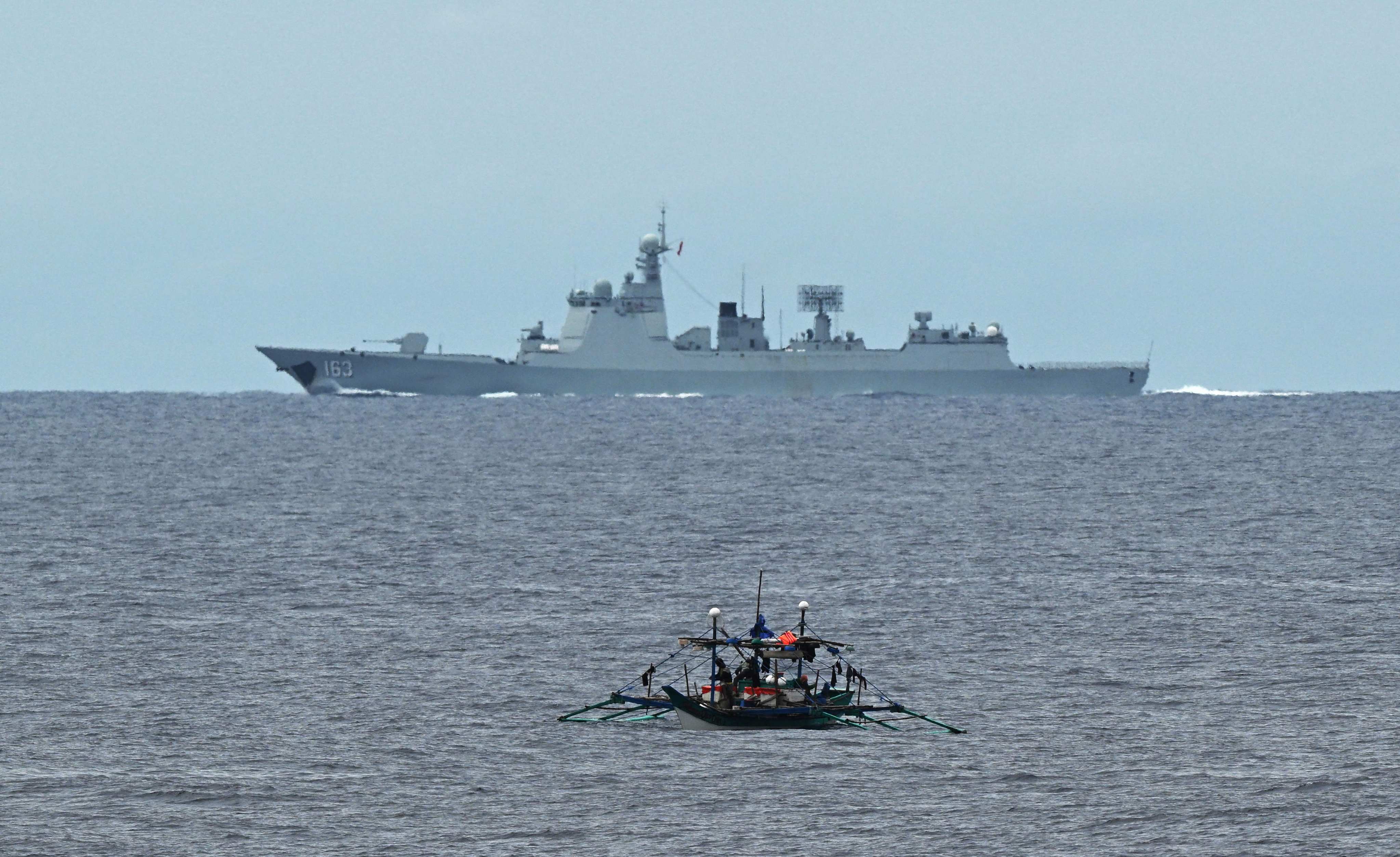By Sam Beltran
Copyright scmp

The Philippines must move decisively beyond routine diplomatic protests in the face of China’s latest assertion of control over Scarborough Shoal, a retired Supreme Court justice has warned, as Beijing’s declaration of a vast marine nature reserve in contested waters deepens fears over regional stability and Philippine sovereignty.
“China’s declaration raises the issue of what state has sovereignty over Bajo de Masinloc – the Philippines or China,” Antonio Carpio, an ex-Supreme Court senior associate justice, said in a statement on Saturday, using Manila’s official name for the contested shoal.
“Thus, it is not enough for the Department of Foreign Affairs to lodge a perfunctory protest.”
Carpio, a leading voice on the South China Sea dispute, urged Manila to “debunk China’s false narrative” and explain “the legal and historical bases of Philippine sovereignty” to both domestic and international audiences. The Philippines “has the exclusive sovereign right to declare a nature reserve in its own territory and territorial sea”, Carpio added.
His comments follow China’s announcement on September 10 that it had designated a national nature reserve spanning 35 million square metres (376 million sq ft) in the South China Sea – including Scarborough Shoal – which Beijing described as crucial for “diversity, stability and sustainability”.
The move drew a protest on Thursday from Manila, which condemned it as “illegitimate and unlawful”.
“Bajo de Masinloc [or Panatag Shoal in Filipino] is a long-standing and integral part of the Philippines over which it has sovereignty and jurisdiction,” the Department of Foreign Affairs said in a statement, adding that it would be issuing a formal diplomatic protest against China’s actions, which “clearly infringe upon the rights and interests of the Philippines in accordance with international law”.
Echoing Carpio’s warning, other analysts urge the Philippines to do more, saying Beijing is pushing for its narrative while avoiding formal negotiations with Manila on the matter.
Julio Amador, interim president of the Foundation for the National Interest and founder of the policy advisory firm FACTS Asia, said Beijing’s declaration of a nature reserve was part of a broader strategy to entrench its presence and assert control over Scarborough Shoal.
“China is trying to normalise its presence there by trying to make everyone believe that it has the right to make and enforce policy over the Scarborough Shoal … Definitely, China has no right to make policy over the Philippines’ exclusive economic zone,” Amador told This Week in Asia.
Amador said that China’s declaration on the natural reserve was a provocative move and urged the Philippines to respond more robustly, adding that Manila was not responsible for raising tensions.
“A diplomatic protest should follow, and further steps should be studied. And the Philippines should make it clear it does not recognise China’s policy or right to make policy over Scarborough now or ever… The Philippine government can use this to communicate to the wider public that it is China that chooses to raise tensions,” he said.
Darwin Angeles, a lecturer at the University of the Philippines’ college of law, said Beijing’s announcement was “yet another attempt by China to manufacture a semblance of a legal right to Panatag Shoal, despite that it is hundreds of nautical miles away from the Chinese mainland”.
Angeles added that Beijing’s plan to establish a nature reserve might also be an attempt to “lay the basis to deflect the issue of liability for environmental damage caused by its activities in constructing artificial islands within the West Philippine Sea”.
A study by the Asian Maritime Transparency Initiative has found that China was responsible for burying over 18 million square metres of coral reef since 2013.
In July, the Philippines accused a Chinese vessel of causing more than 11 million pesos (US$194,000) in damage to protected coral reefs near Thitu Island in the South China Sea, after the vessel dragged an anchor and destroyed about 464 square metres of reef less than 3km from Thitu – known locally as Pag-asa Island.
If China’s latest announcement is unchallenged, it would be accorded “a veneer of legality”, according to Angeles.
“This will be adverse to the Philippines and the rest of the world, which relies on the legal stability afforded by the UNCLOS,” he added, referring to the United Nations Convention on the Law of the Sea.
Amador said that China was waiting for a response to its announcement by the Philippines.
“If it sees that there is no effective pushback, there is a strong possibility that it will try to do the same over other features. China is already trying to impose a fishing ban regularly.”
Angeles said the Philippines could explore arbitration to challenge Beijing, but bilateral trade and risks of hostilities might prevent Manila from doing so.
“While it is prudent for the Philippines to continually strengthen its legal position, it may choose to calibrate its response so as not to sacrifice legal, economic or geopolitical considerations,” he said.
Chester Cabalza, founder and president of the think tank International Development and Security Cooperation, said that the Philippines should assert its claims based on the arbitral award in 2016.
“The 2016 Hague ruling is the final and binding international decision won by the Philippines against China in the Scarborough Shoal … the harbinger for our legal cause to contradict China’s debunked dash line regime and championed an international rules-based order,” he told This Week in Asia.
The international arbitral tribunal ruled that there was no legal basis for China’s “nine-dash line” claim. Beijing rejected the ruling and has continued to assert control over Scarborough and other contested features, staking its claims on what it says are its historical rights.
Another option would be to initiate the creation of a minilateral code of conduct among Southeast Asian countries that “includes the preservation of the contested Scarborough Shoal and resistance against making the shoal a protected area under China’s law”, Cabalza said.
Scarborough Shoal – also known as Huangyan Island in China – lies just 240km (149 miles) west of Luzon’s Zambales province, inside the Philippines’ exclusive economic zone. China has held de facto control over the shoal since a naval stand-off in 2012 and steadily increased its presence in the area over the years.
The shoal is one of the flashpoints in the broader regional dispute over the South China Sea, where multiple countries have overlapping maritime claims. The Philippines argues that the shoal falls well within its 200-nautical-mile exclusive economic zone based on UNCLOS.
In recent months, China has fortified its presence in the area. Two of its naval warships were spotted earlier this month. The Philippine military said in August that it saw an increase in Chinese maritime presence around the shoal after a collision between two Chinese vessels.



